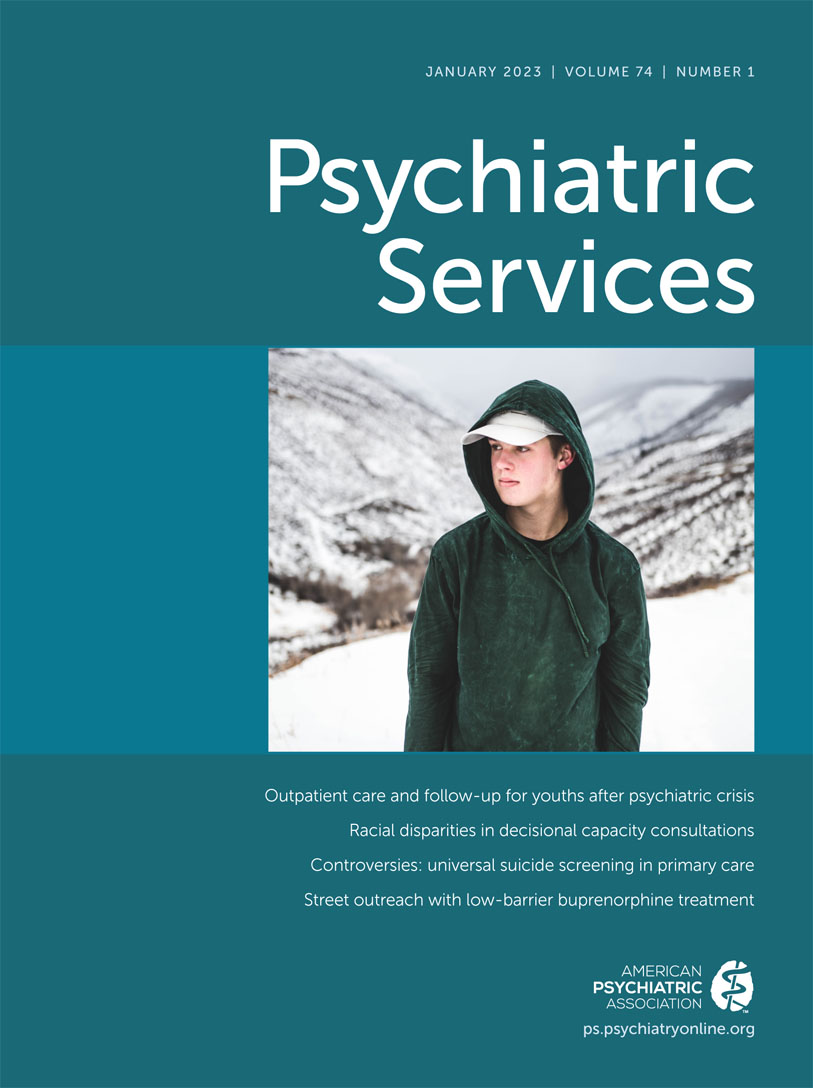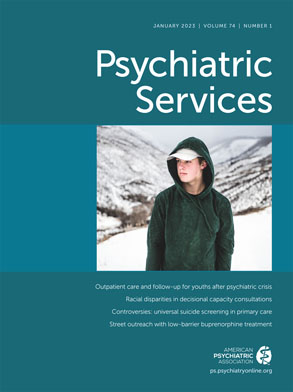I am a researcher of behavioral health policy, an organizer of online support groups, and a client of behavioral health services myself. I have bipolar disorder. I have not had any acute episodes for about a decade, but managing residual symptoms, the various ups and downs of the disorder, is a daily routine—mundane but taxing. Nonetheless, I am an extremely lucky person. After a year of trial and error, by taking only one medication, a treatment tactic that minimized adverse effects, I could pass as a “normal person.”
Then the COVID-19 pandemic hit me hard. One medication was no longer enough to control my symptoms. I embarked on a journey of finding a new medication regimen to regain my balance. One medication became three, with the dosages being carefully monitored and adjusted. Then one of the three medications was replaced by another one. Various adverse effects would come and go.
Once, my treating psychiatrist and I discussed the feasibility of taking lithium. I gave a definitive “no.” I had taken it 10 years ago; it had too many adverse effects and too few benefits for me. One decade ago, I tried a handful of other medications. All of them had many adverse effects that were so strong that I will always remember their names, although I completely forgot their dosage.
It is necessary for me to remember the lengthy names of the three medications I take now and of those I have taken in the past. This demanding memorization task is necessary because whenever I visit a new physician, I am being asked to write down the names of all the medications I am currently taking and sometimes of the ones I used in the past few years, including both their names and dosages, as well as the dates I started and stopped taking the medications.
After my medication regimen became more complex, I realized that an inconvenient situation was waiting for me: in another few years, I won’t be able to accurately recall all these medications. I may not be able to recall how long I have been on one medication before trying another one and why I stopped it. I know this forgetting will happen because I already could not recall the details of this new round of trial and error. It is just too much information to retain in memory.
I also realized that a wise action that I should take would be to keep a record after every psychiatric visit, carefully noting everything important. Certainly, I could do that. I could sit down in front of my computer, open an Excel sheet, and type. If I were not a health policy researcher, I would just take care of myself and track my own medication regimen in this way.
I am lucky to have a relatively “normal” life. I am the exception, not the rule. I have a Ph.D. and a stable 40-hour job. My personal life situation is by no means the life of an average person with a serious mental illness. Many people with serious mental illness go through crises, hospitalizations, job loss, homelessness, feeling too ill to get out of bed, or too sedated to remember almost anything. Tracking down medications with extremely long names year after year is hard work for a healthy person, not to mention for people living with mental illness who already have so many other challenges.
Clinicians do not typically prescribe medication if it has previously been used by and had little therapeutic benefit, or had intolerable adverse effects, for the patient. Accordingly, if patients cannot recall which medications they had taken previously, clinicians are missing critical information. In theory, a clinician could browse through patients’ medical histories, assuming the clinician has access to those histories, which is not always the case. Even if a patient’s medical record is available, a great deal of information may not be well organized. A correspondence with previous providers may offer a general overview of previously prescribed and adjusted medications, but many details might be missing. In many cases, the patients’ memories might be the only source of information, leaving abundant room for errors and missing information.
It therefore would be helpful if all the information about each medication used by a patient across multiple providers could be brought together and organized such that the clinician can use a single reliable source to obtain years of a patient’s medication history.
It is a clinician’s job to keep a medication history. While writing my Ph.D. dissertation to compare the outcomes of two pragmatic bipolar disorder trials, a paper instrument for collecting medical data caught my attention. The medication recommendation tracking form (MRTF), developed by Reilly Harrington et al. (
1), records a clinician’s prescribing behavior and clinical decision making by documenting the medication name, daily dosage, change in dose or medicine, and the reason for the change. The MRTF’s developers intended to help clinicians be more conscientious when prescribing as well as encourage concordance with prescription guidelines.
The MRTF was primarily designed for research purposes. If it could be simplified, adapted for, and used widely in clinical practice, it could greatly benefit patients, especially those who have frequent relapses and are on many different medications. The adapted tracking form would provide clinicians with a patient’s detailed medication history, which could inform current treatment. Importantly, if it would also be available to patients, it would enable them to keep track of their medication history.
I created an example tracking form, adapted from Reilly-Harrington et al. (
1). (The form is available in an
online supplement to this column.) The form is organized by visits. It has only five columns, including the date of a medical or psychiatric visit, medication name, dose or unit, any medication adjustment at the visit, and the reason for the adjustment. The adjustment could be a new medication, increase or decrease in dosage of an existing medication, discontinuation of a medication, or no change. Clinicians fill in the form for each medication at each visit. Gradually, a medication history is built.
Besides helping to inform prescribing, the tracking form enables patients to track their own medication history and thereby facilitates shared decision making between patient and provider. The form narrows the power and knowledge gap between patients and clinicians, and patients are given greater control over decision making. For example, it can be difficult for patients to evaluate a medication recommendation by their treating clinician if they have only a vague memory of taking the recommended medication 10 years ago. They would be better able to make decisions if they had the accurate medication history at hand. Furthermore, patients who can track their own medical history may gain a greater sense of control over their lives, countering the feelings of shame, inferiority, and being out of control that are commonly associated with mental illness.
In addition, it would allow patients to share information with their peers. As an organizer of a support group, I often find that participants are asking each other which medication they are taking and its dosage and effects. Although a single person’s success story may not inform another’s treatment plan, and medication decisions should always be made together with clinicians, this type of information exchange builds rapport between peers. According to my observations, some people become frustrated when their peers cannot remember what medicines they have taken. Rather than assuming that the other person just did not know about this information, an inquiring peer may feel disappointment or a sense of social rejection or may judge the other person as cognitively incapable. A tracking form would help peers communicate better and build rapport.
Why do I advocate for tracking medication information but not other types of information? Because medication history is the most challenging for patients to remember and is too critical to get wrong. The proposed form could be used for persons with any health conditions requiring medication management.
A simple portable tracking form would allow prescribing clinicians to build a comprehensive record of medication history that is standardized and easy to access compared with traditional electronic medical records (EHRs). Currently, different EHR brands cannot or will not exchange information. It would be best if such a tracking form were available as a smartphone app, allowing patients to annotate their own experiences, such as symptoms and functionality, as a supplement to clinician notes.
Nevertheless, there are some obstacles to implementing a digital medication tracking form. For instance, clinicians have little time to fill in additional forms. Much of the medication history is already in the EHR, meaning that there would be some redundancy. It would be optimal if the EHR system could automatically organize medication information and transfer it to a paper- or app-based tracking form. When a patient is seeing another provider, the patient could bring the form along. An EHR system with a built-in function to scan and store the information on the form would ensure continuity of care. Also, it would be helpful if clinicians could directly ask—with the patient’s consent—for the medication tracking form from the patient’s previous treatment providers. Pharmacists may be another source of information to complete the medication history. Legislation may be needed to allow the exchange of such information from various sources and ensure protection of the privacy of both patients and providers.
I understand that implementing this change will require a lot of work, including lobbying various EHR manufacturers to modify their software and educating both clinicians and patients about the long-term benefits of having a complete medication history.
For now, patients and caregivers can certainly document this information by themselves. But why not let policy change and technology relieve the burden on persons with mental illness and make their lives a little easier.

